Your WordPress website might gather a lot of clutter over the years. For its development, you can use tools like WP Turbo. As your website grows, it’ll accumulate data in the form of media files, database files, posts, tags, user activity, and much more. Though it is great to grow a website as much as possible, it is also important to keep it lean and concise. WordPress doesn’t allow an automatic functionality that eliminates all the unnecessary data or automates optimization by default.
However, you can do it manually or use plugins that help you do it. Many website owners simply drill through without ever doing a clean-up, which affects the site’s performance big time.
Why Cleaning & Optimization Are Important
Not cleaning your website can have serious repercussions on your performance and user engagement. As your website accumulates data, one thing that happens is that you use more server resources. This doesn’t give room to other more important tasks to receive necessary resources. This means that you should shed extra weight off your website.
Another thing that unnecessary data does is that it slows down the loading time. This can seriously damage your SEO and SERP ranking.
This not only affects you but also is a pain point for visitors. If your website is loading slower than 5-7 seconds max, it is highly likely that you’ll see a very high bounce rate.
Usually, any website gathers data over a certain period and through some growth. However, even if you want to become a blogger and have just started blogging, you must know how to clean your website and keep it optimized as you move forward with it. You can avoid surfing through hundreds of media files and posts later on to clean your site.
Tips To Clean Up & Optimize Your WordPress Site
There are multiple aspects to your WordPress site that store cluttered data and many methods of cleaning and optimizing each aspect for optimum performance. Depending upon the nature of your site, you can decide how frequently you want to clean up. If you don’t upload too much content regularly or there is low user activity, then once in 4-6 months is good enough.
Before moving forward, make sure you backup your website.
Delete unused themes and plugins
Though WordPress themes are one of the cleanest and most integrated themes, they don’t offer much functionality or customization. Similarly, WordPress supports plugins to add functions and features to your site that it does not have by default.
It is likely that you must have installed many plugins and experimented with different themes over a period of time. Maybe in the hustle of running your site, you simply forgot about the ones you don’t use anymore. These excess themes and plugins add extra baggage.
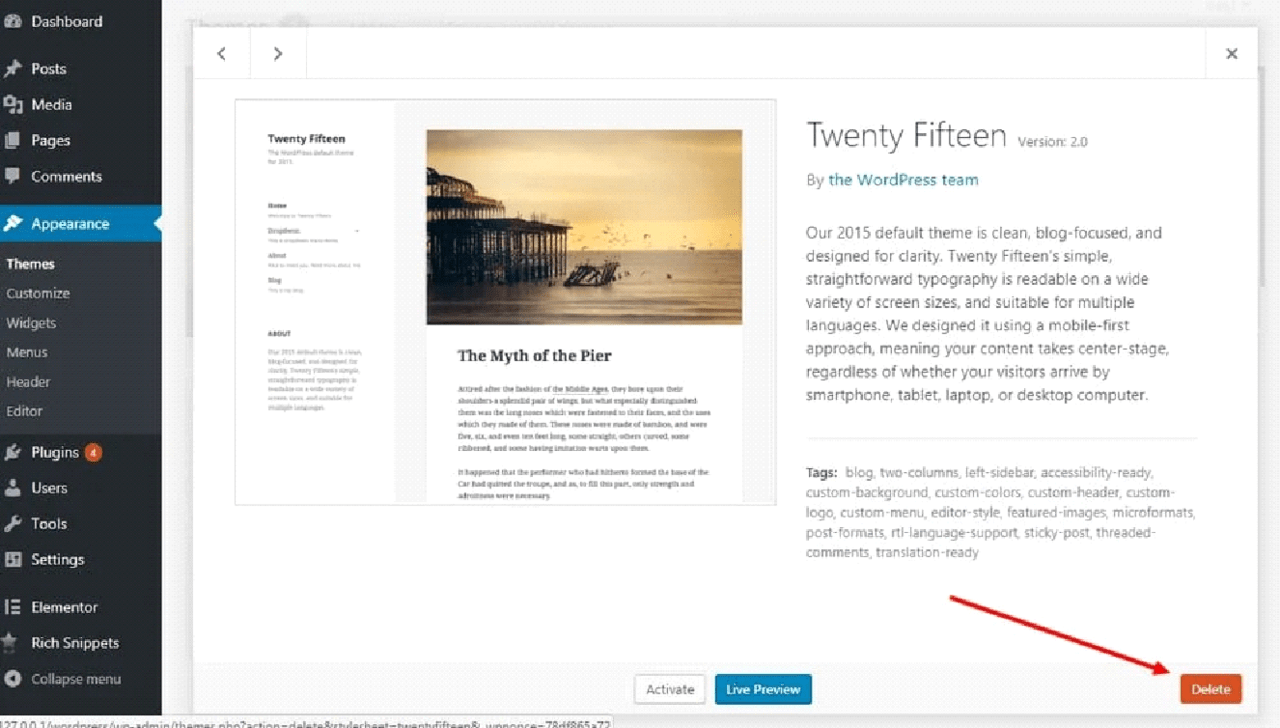
Simply delete the themes and plugins that you don’t use anymore. Make sure that you delete them and not simply deactivate them. Many plugins must have outdated and don’t receive any more updates; you must delete them or replace them with different ones.
Declutter your posts
Putting up content on a website is like giving it air to breathe. It makes your website rich, active, and dynamic. However, there are many aspects to our posts that might have become obsolete and need to go away.
Old revisions of posts you don’t work on anymore are one thing that you don’t need anymore. Similarly, you can delete unused tags and categories that you must have created initially and don’t use anymore. It might be tedious work, but it’s worth the effort.
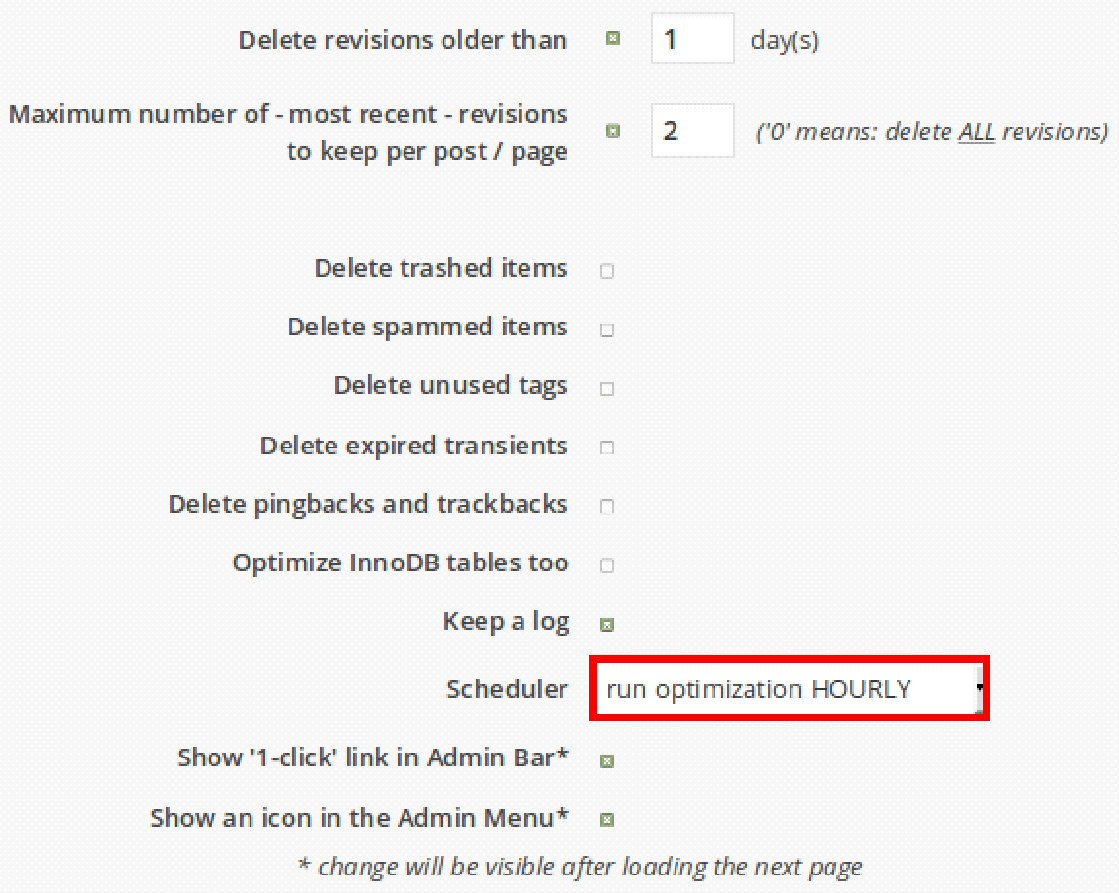
One common thing that most people miss is spam comments. If you have a lot of user engagement and do not have some firewall against spam, you’ll see they pile up real soon. The following plugins can help you with the task effortlessly.
Update core WordPress, themes, and plugins
WordPress releases new patches and updates now and then, improving many of its features, adding some new functionality, or changing the code a little. Similarly, themes and plugins release frequent updates too.
It is important that you keep your core WordPress themes and plugins updated. In case you still use the older version, you might face performance issues and technical errors. You’ll be more vulnerable to security threats, might face compatibility errors and plugin conflicts.
Optimize Images and Videos
Media files take up the largest chunk of your server space. Perhaps, optimizing your media files is one of the most important things you want to do. One thing is to delete all the media files that no longer display on your website and simply exist in your media library.
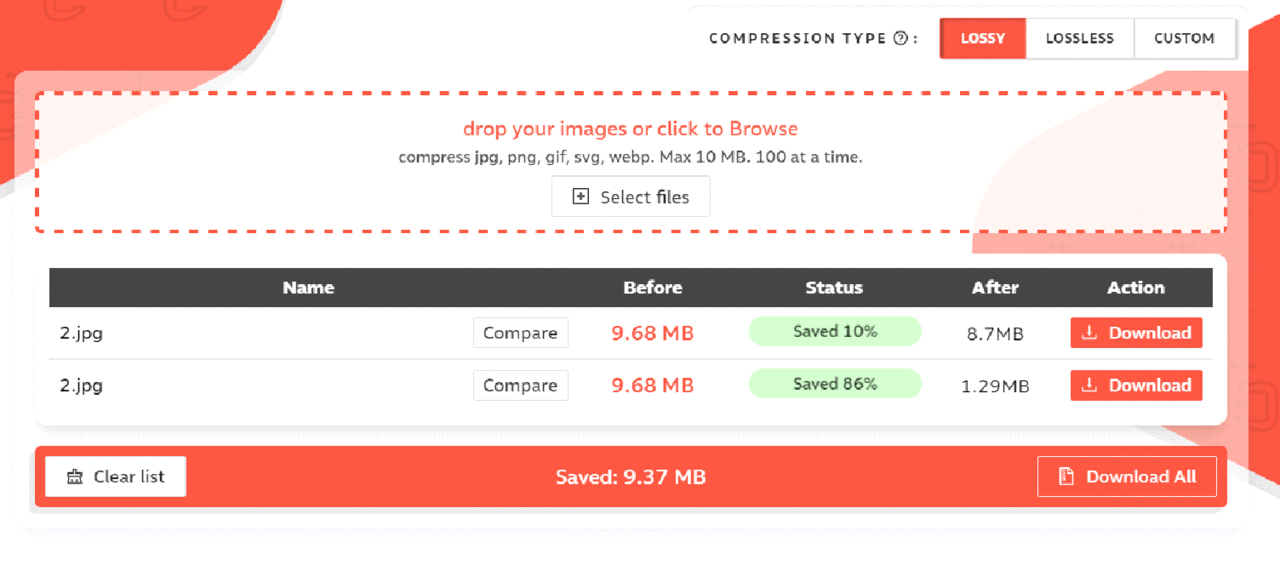
Another thing that you want to do is to optimize all your existing media files for size. Many online tools let you compress your images and videos and reduce the size significantly.
You can also use a WordPress plugin instead. The plugins not only bulk optimize your existing media but also optimizes the new media files as you upload them.
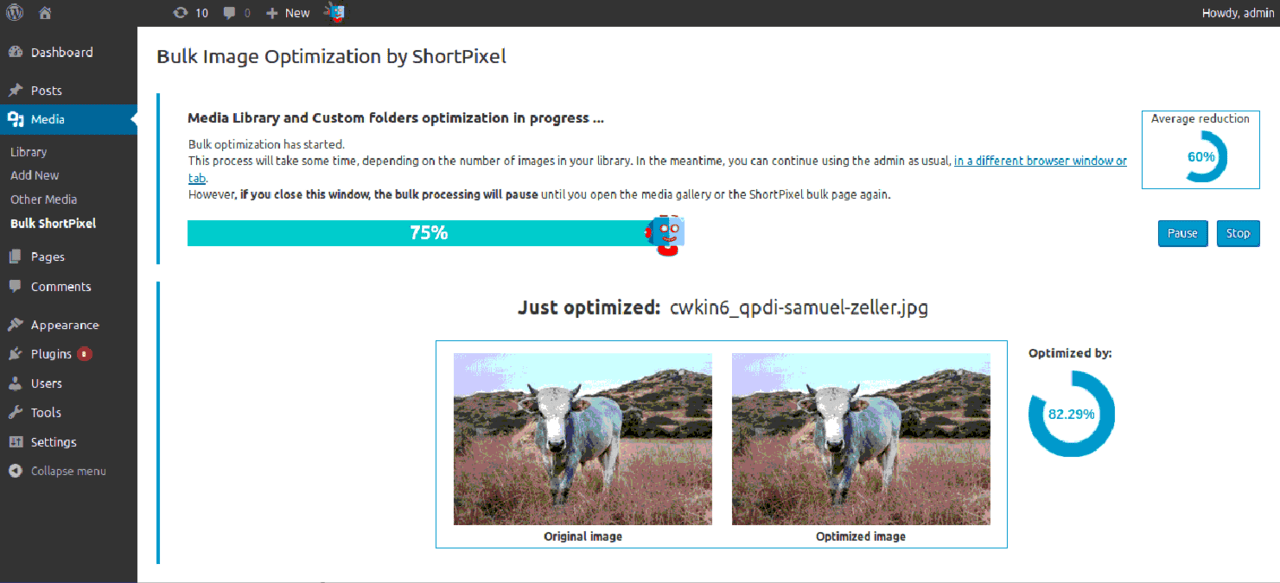
Here is a list of some awesome WP Plugins:
Check for broken links
Over the years, various internal and external links must have gone on your website. It is likely that with time, some of these links do not function anymore. This might happen because of the content being moved or deleted.
These broken links usually take you to 404 error pages. From a visitor’s perspective, these are frustrating and drop your credibility. Thus, checking for these links and fixing them is very important. It might directly enhance your performance, but it surely enhances the user experience.
Manually checking for broken links can take ages and is a very tedious process. You can instead use a plugin that does the job for you. It alerts you for existing broken links and checks as you keep uploading in the future.
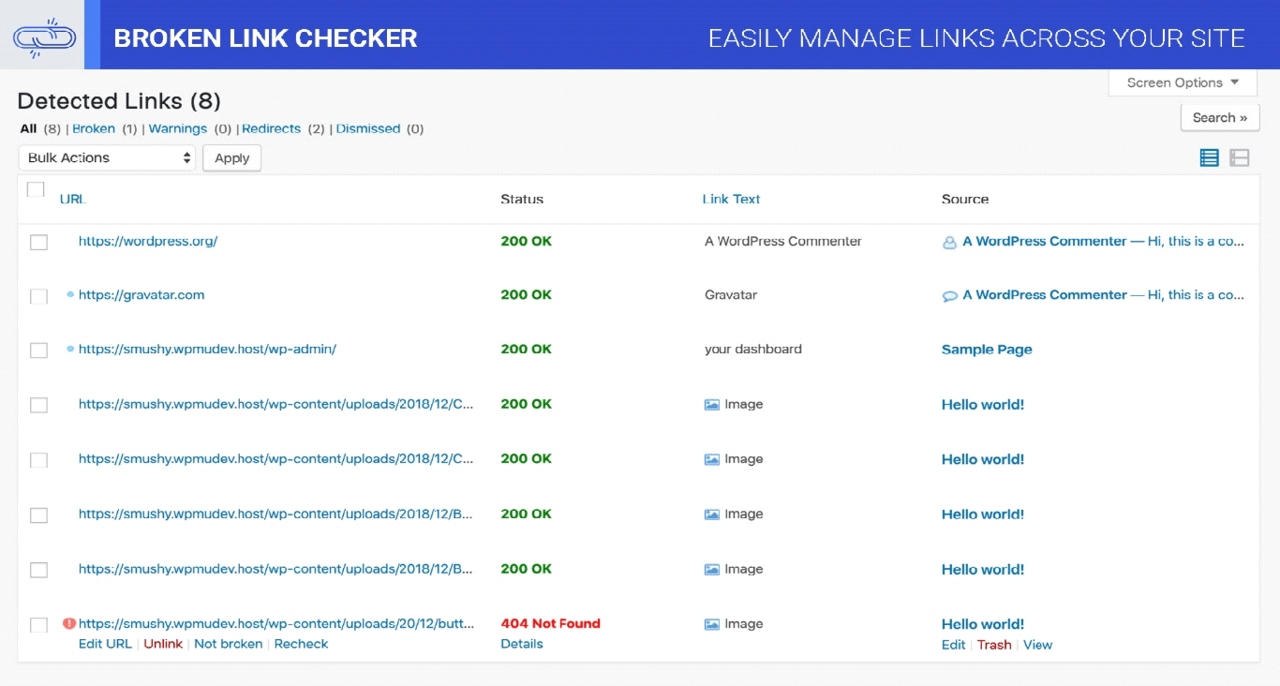
Here are a few that you can use:
Wrapping Up!
You should start as soon as possible and use plugins that all together avoid accumulating data. It’ll be tedious if you try to clean your site down a few years in line manually.
Gauge the level of user activity and nature of your website. It helps you determine how frequently you should clean up your site. It gives you a fast, uncluttered and navigable backend experience and also enhances performance and user experience for visitors.
